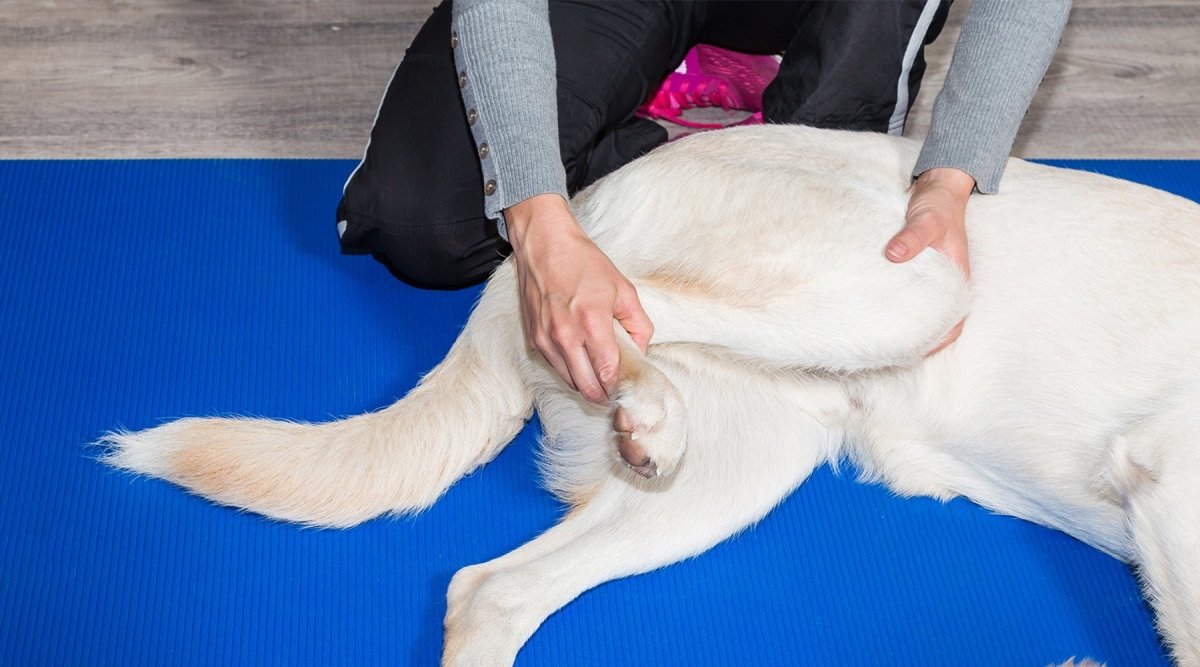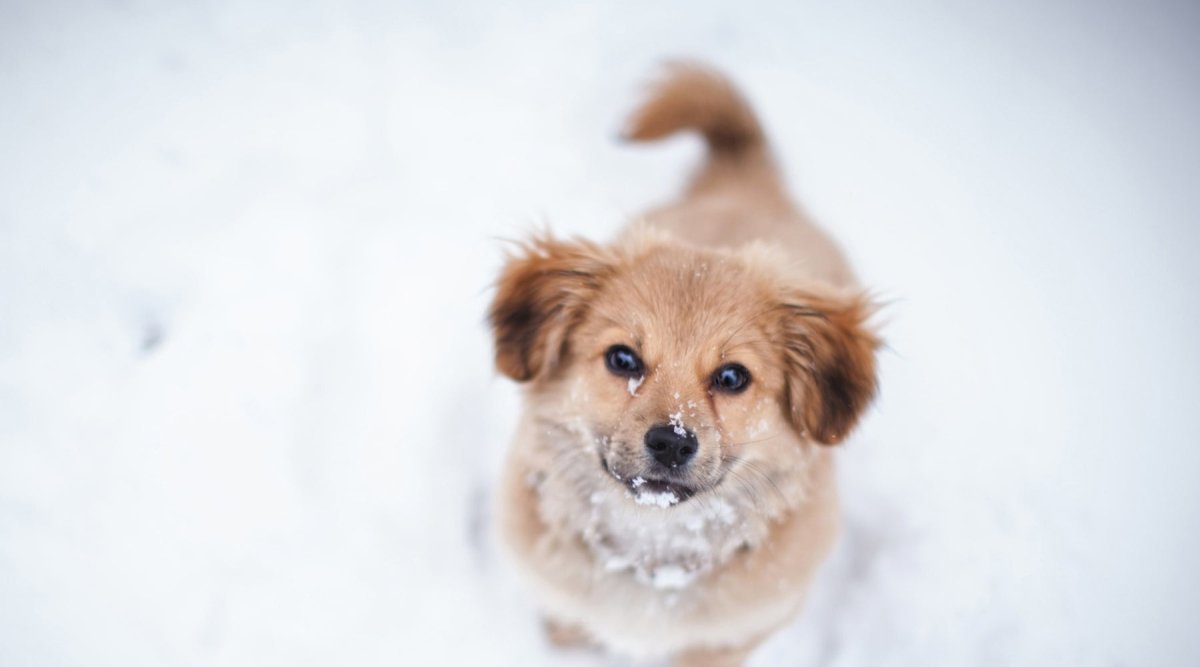1. age-appropriate exercise
How old age manifests itself is different for every dog. Dogs often require less exercise and more rest. But the following also applies to dogs: "He who rests, rusts." Regular exercise promotes blood circulation and stimulates the circulatory system. Small mental challenges keep your four-legged friend mentally active even in old age.
At a glance:
- Avoid one-sided "stop-and-go" games, i.e. throwing sticks or ball games. This can lead to injuries and is not in the dog's nature.
- Instead of hour-long walks, it is better to go for shorter walks 3 - 4 times a day.
- Keep your four-legged friend fit with small brain teasers, e.g. you can hide his favorite toy.
- Agility light training is also suitable for seniors. The sense of achievement when tasks are successfully mastered brings a zest for life and keeps you fit.
- Swimming relieves pressure on the joints and is particularly recommended for older dogs. However, avoid letting your dog jump into the water in cold temperatures. Seniors often have a weaker immune system and can easily catch a cold.
2. adapted diet
Many older dogs come to my practice overweight. Something I don't like to see at all. The body works more slowly in old age and less exercise causes your senior dog to lose muscle mass.
It is important that you, as the owner, adjust your dog's diet to prevent it from putting on fat pads. Because every extra kilo puts a strain on your dog's joints and body. Choose easily digestible food that is adapted to your dog's activity level.
At a glance:
- Feed smaller amounts more often during the day.
- The pieces of meat should not be too large or too hard.
- Some senior dogs need more water. Make sure that your four-legged friend always has enough of it available.
- The dog's body can no longer utilize protein as well in old age. This can lead to tissue breakdown and a weakening of the immune system. Therefore, feed your dog high-quality protein from white meat such as chicken or turkey.
3. important supplementary feed
Older dogs often suffer from osteoarthritis, a slower metabolism and poorer blood circulation. At the same time, they need more vitamins and minerals in old age to maintain their immune system.
An adapted nutritional supplement can be offered to senior dogs to provide age-appropriate support. High-quality food supplements for dogs - specially tailored to older animals - are essential for maintaining muscle and joint function and staying healthy in old age.
At a glance:
- Your senior dog has a higher requirement for vitamins, minerals and amino acids.
- The right nutrients support muscle and joint function. We offer green-lipped mussel powder and green-lipped mussel capsules as dog supplements to build muscle and support the joints. Collagen for dogs is also a good support for maintaining agility in old age.
- Make sure to feed only natural vitamins, as the body cannot properly process artificial vitamins, which are contained in most foods and supplements.
- AniForte Senior Active, which has a positive effect on the metabolism, joints and heart and at the same time provides your senior with vitamins, minerals and amino acids, provides optimum support as they grow older.
- Talk to a vet or veterinary practitioner to put together a food supplement tailored to your pet's needs.

4. detoxification
A healthy gastrointestinal tract is important in order to process nutrients properly and break down toxins. Regular detoxification of the liver, one of the most important detoxification organs, and stabilization of the intestinal flora are recommended.
At a glance:
- The liver is responsible for breaking down a range of different toxins, such as bacteria, parasites and environmental toxins.
- The liver needs a range of minerals and vitamins so that it can perform its task well in the long term.
- To support your senior dog's liver function, it is advisable to carry out a liver detox 1-2 times a year. The best way to do this is to speak to your vet or veterinary practitioner.
5 Regular prevention and care
As with us humans, we want to avoid only going to the doctor when it hurts. You can prevent certain diseases in your four-legged friend through regular check-ups. In addition, you give your vet the opportunity to record changes in your pet's state of health, which often makes diagnoses easier. The following examinations are part of a comprehensive preventive care program.
At a glance:
- Blood and urine tests
- Heart and circulation tests
- Posture and joint checks to detect diseases such as osteoarthritis at an early stage
- Tartar prophylaxis to prevent tartar(dental care powder Denta Clean & Care)
- Checking skin, coat, eyes, ears and claws
- Checking the nutritional status and muscles
Some things change in dogs as they get older, but your four-legged friend's ageing process is just as unique as he is. That's why you should visit your vet or veterinary practitioner at least twice a year for an age check and make sure your dog has a balanced diet, which you can support with the right food supplements. Senior dogs should also be kept physically and mentally fit through regular detoxification and age-friendly exercise.
Do you know any owners of senior dogs who would like to support their four-legged friends as they grow older in a natural way? Then share this article with them.
Here's to healthy ageing!




